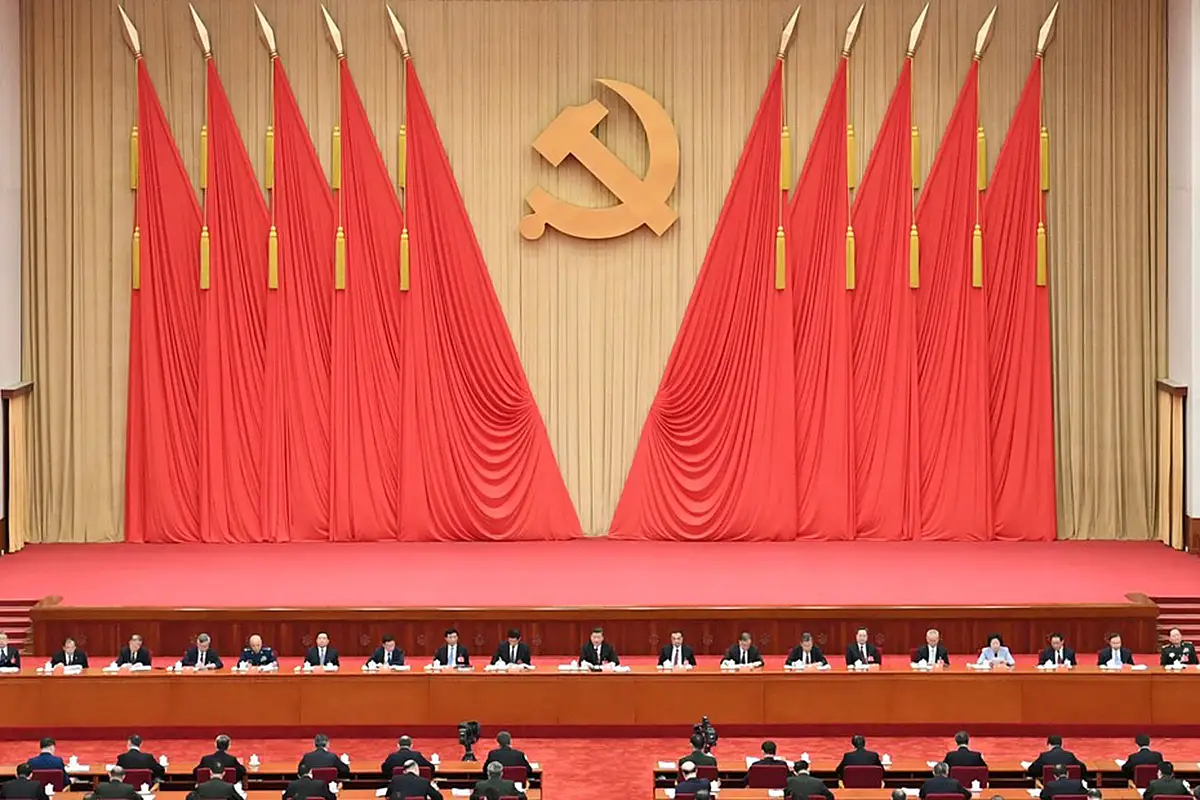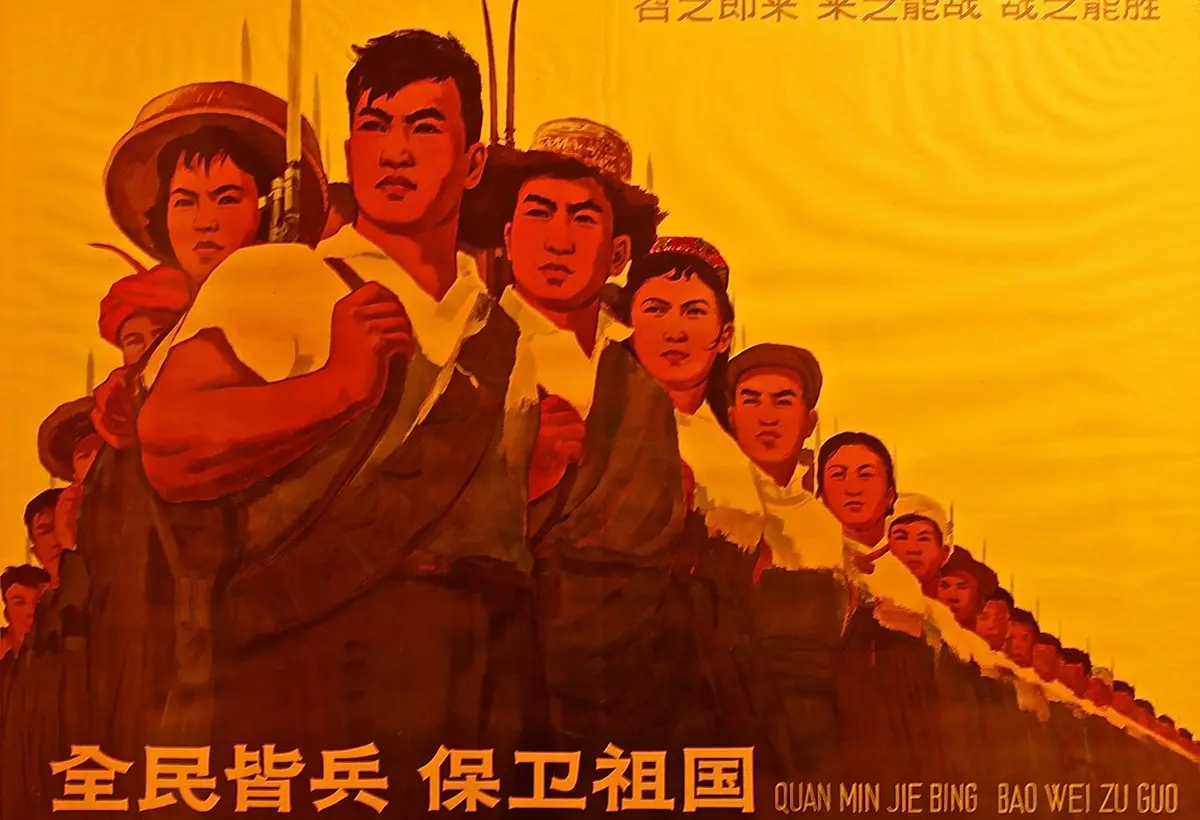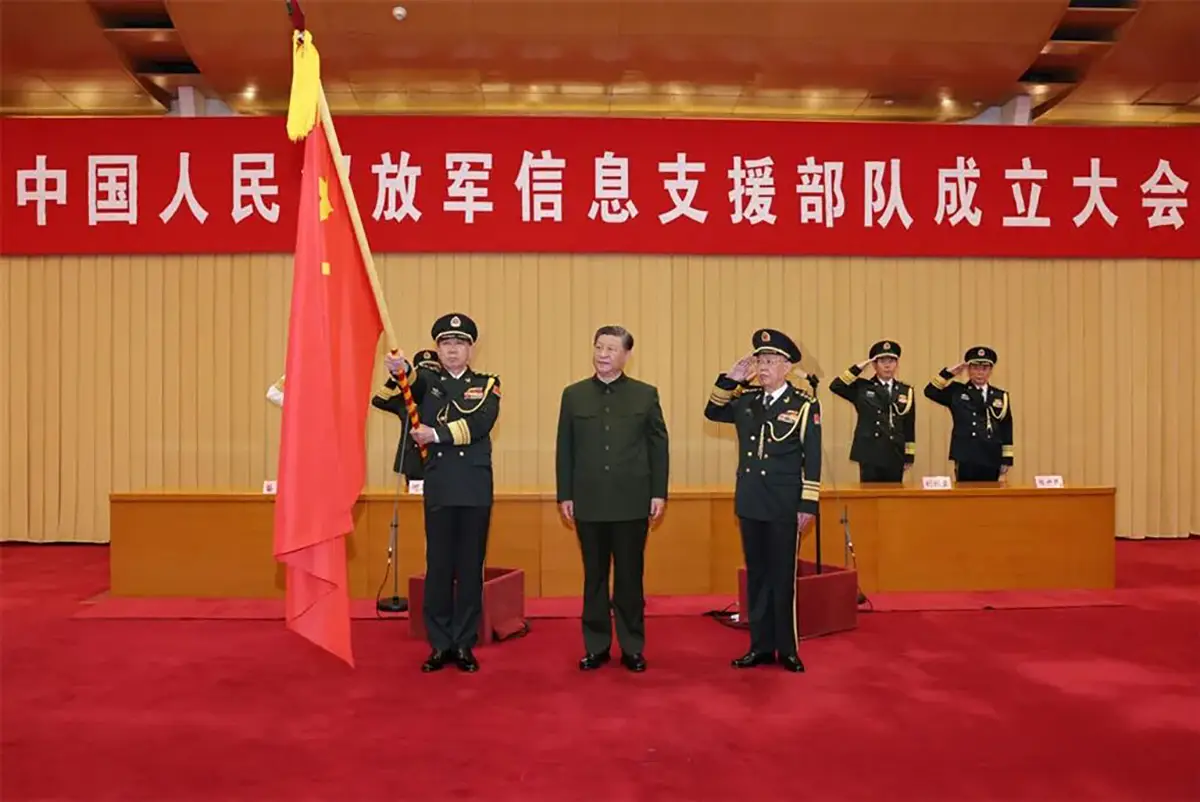Nine senior military officials were officially expelled from the Chinese Communist Party (CCP) during the Fourth Plenum of the 20th CCP Central Committee last month. Dozens more party officials and People’s Liberation Army (PLA) officers failed to attend the plenum, suggesting more officers could be removed from the PLA. This round of purges in the PLA, the latest in a broader anti-corruption campaign that began almost as soon as Xi Jinping took power in 2012, carries potential implications for PLA readiness, and by extension for US policymakers grappling with how to “reestablish deterrence” in the Indo-Pacific.
The plenum, held this year from October 20 to 23, is a procedural meeting of several hundred of China’s top party cadres. The primary emphasis of this year’s Fourth Plenum was discussion of China’s 15th Five-Year Plan, which will guide policymaking from 2026 to 2030, and sets the direction for key decisions that could affect the military.
What Military Personnel Developments Came Out of the Fourth Plenum?
The Fourth Plenum approved the removal from the CCP of senior PLA officers, two of whom sat on the Central Military Commission (CMC), the PLA’s supreme command authority. The nine officers officially removed from the party and Central Committee at the plenum include CMC Vice Chairman He Weidong; CMC member and director of the CMC Political Work Department, Miao Hua; and commander of the Eastern Theater Command, Lin Xiangyang—responsible for missions around Taiwan.
During the plenum, the only officer promoted was PLA Rocket Force General Zhang Shengmin, who was elevated to the role of CMC vice chairman, replacing He Weidong. Notably, Zhang has been serving in high-profile anti-corruption roles, including secretary of the CMC Discipline Inspection Commission.
The pace of high-level PLA purges has resulted in the highest proportion of vacancies on the CMC since the Mao period. The CMC is usually made up of seven officials but currently only has four due to the purges. It makes key military decisions and directly oversees 15 departments that administer the PLA day-to-day. Such dismissals were unheard of under Xi’s immediate predecessors, Hu Jintao and Jiang Zemin, who did not investigate any PLA generals during their respective tenures. Although Xi’s anti-corruption campaign within the PLA previously targeted two former vice chairmen of the CMC, Guo Boxiong and Xu Caihou, He Weidong’s dismissal represents the first removal of a sitting vice chairman of the CMC since 1967.
These personnel moves leave China’s military underrepresented on the Central Committee. When the 20th Central Committee was first announced in October 2022, 44 of the 205 full members of the committee were military officers. At the Third Plenum in July 2024, Defense Minister Li Shangfu and PLA Rocket Force Commander Li Yuchao were removed. After the recent expulsions only 34 full members of Central Committee are military officers.
What Is Driving the PLA Purges?
Observers in both China and the United States offer a range of possible explanations for these expulsions:
- They are guilty of abusing their power for personal enrichment. A pre-plenum editorial in PLA Daily—the official mouthpiece of the CMC—says they are “suspected of serious duty-related crimes involving extraordinarily large sums,” and that they are the “toxic legacy of Guo Boxiong and Xu Caihou,” who were involved in taking bribes in exchange for advancing other officers’ careers.
- They developed their own patronage networks and power bases, with nepotism rather than merit determining promotions. PLA watchers at Brookings and the Jamestown Foundation note that the purged officials had overlapping career paths. Xi could have seen these potential networks as undermining his control of the PLA.
- They were the target of a purge directed by the other CMC vice chairman, Zhang Youxia. The Central Military Commission has two vice chairmen, who until recently were He Weidong and Zhang Youxia. Georgetown University Professor Dennis Wilder argues that the purges were motivated by a factional struggle in which Zhang Youxia, a Xi favorite and “princeling” (the son of a revolutionary leader) sought to prevent the rise of a new generation led by He Weidong.
More Military Firings to Come?
Several developments from the Fourth Plenum indicate further removals of high-ranking military officers may be on the horizon.
First, party messaging has suggested more dismissals will come. One signal came during a post-plenum Central Committee news conference, when a party official told reporters that “China's fight against corruption is a protracted battle with no finish line.”
Second, the continued disappearance of military officers not yet officially purged suggests ongoing investigations. In addition to the Central Committee members who were dismissed at the plenum, 14 generals were absent, including Southern Theater Commander Wu Yanan, Western Theater Commander Wang Haijiang, and Eastern Theater Command Political Commissar Liu Qingsong. Attendance was the lowest of any Central Committee plenum since Xi assumed power in 2012. About one of every six committee member was absent from the key meeting. Though not a sure sign of political downfall, missing key events has been a common early sign that a high-ranking military officer is in political trouble.

Figure 1. Plenum Absences Since the 2012 First Plenum of the 18th Central Committee
Source: Plenum Communiques
| Central Committee | Plenum | Absences |
|---|---|---|
| 18th | 1st | 0 |
| 2nd | 4 | |
| 3rd | 3 | |
| 4th | 13 | |
| 5th | 21 | |
| 6th | 28 | |
| 7th | 44 | |
| 19th | 1st | 0 |
| 2nd | 1 | |
| 3rd | 3 | |
| 4th | 5 | |
| 5th | 12 | |
| 6th | 28 | |
| 7th | 18 | |
| 20th | 1st | 5 |
| 2nd | 3 | |
| 3rd | 12 | |
| 4th | 61 |
Third, replacements for the purged officials on the Central Committee are coming from outside the military, another clue that PLA purges will continue. Article 22 of the party’s constitution dictates that whenever full members are removed from the Central Committee, they are replaced by committee alternates in a pre-specified order. But this time, four military officers who should have been elevated based on their rank as alternates were skipped over.
What Do Purges Imply for PLA Readiness?
There are several reasons why military corruption and associated removals of personnel could potentially negatively affect PLA readiness. First, if officers have been climbing the ranks through bribery, rather than merit, it could bode ill for their operational competency. Second, if equipment contracts were chosen based on kickbacks rather than quality of materiel, the effectiveness of critical systems could also be affected. Third, PLA rank and file morale may suffer upon learning that so many high-ranking officers have failed to meet Xi’s expectations. Fourth, the PLA is losing some of its longest-serving members. These effects will be exacerbated by the disruption to day-to-day operations these vacancies may create in the absence of clear guidance.
Xi likely sees the current anti-corruption purges as a necessary—if painful—prerequisite to solving these very problems, and thereby promoting PLA readiness in the longer term. US intelligence officials have assessed that Xi has instructed the PLA to be ready by 2027 to compel reunification with Taiwan. In addition to developing warfighting capabilities, China’s leadership understands that the PLA must also be politically ready, with no doubt that China’s military will obey the party’s command in such a contingency.
Those with concerns about the rising military power of China may take brief comfort from the recent leadership instability. But the PLA could emerge stronger on the other side, suggesting US decision-makers should remain vigilant in their monitoring and analysis of PLA leadership.



